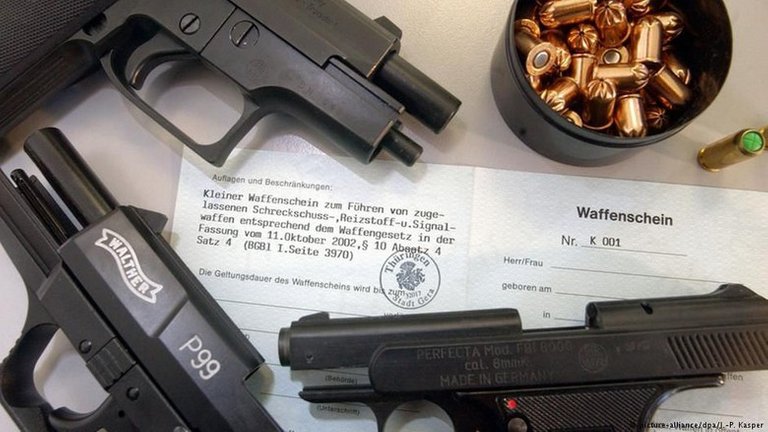
Berlin - Some Germans feel the situation is less secure. Simultaneously, the number of small firearms purchases increased. Experts argue, increasing the owners of weapons actually tend to have a negative impact.
The number of Germans who have obtained weapons licenses has increased in the last two years. In January 2016, just under 301,000 people had such permission; December 2017 there are more than 557,000.
The arms seller said that the martial arts special flashlight, stun gun, and gas spray were sold. The martial arts courses are also increasingly popular.
Perception of safety
The results of the January 2017 poll showed that the majority of Germans feel safe. But about 25 percent of the population feels an increasing perception that the country is no longer secure. A survey conducted by the Infratest opinion research institute was published, indicating that 23 percent of Germans feel "quite insecure" or "extremely unsafe." About 32 percent felt "less secure" than it was two years earlier. More than two-thirds stated that "nothing has changed" for them.
Dina Hummelsheim-Doss, a sociologist and criminology researcher, suspects that most people do not notice any change in the perceptions of salvation in Germany. "In the case of violence, for example, few Germans feel threatened in everyday life," he told DW. "There is hardly any scientific research on this subject, but one early study showed that insecurity in Germany has increased slightly."
Nevertheless, the Infratest survey shows that many people have taken some precautions. A third of the poll respondents said they avoided certain streets at night. Nearly two thirds say they have some kind of weapon to protect themselves.
The role of media
Increased interest in buying small arms along with the Germans began receiving more refugees. Asked by Infratest which group they fear most, nearly a third of respondents said "foreigners and refugees." The second most feared group, "neo-Nazis and right-wing extremists," lags 13 percent.
Nevertheless, Hummelsheim-Doss stressed that it remains unclear what the impact of immigration on people's security. "This development is mostly delivered in the media," he said. "Usually, the public gets information from the media without being able to judge for themselves what the problems facing Germany as a whole, but of course it can not be ruled out that social development - like immigrants - causes fear.It is justifiably an entirely different matter.
More weapons, less secure?
So does having a weapon guarantee a higher level of security? According to criminologist and lawyer Arthur Kreuzer, the answer is "no."
"In extreme psychological situations, many people use firearms and shoot themselves or others," he told a lecture at the German Police University in July 2017. "If not clashing weapons, some cases of spontaneous suicide or unintentional killing can avoided. "
Moreover, he added, increased arms ownership has poisoned the climate of coexistence. "The weapons mentality is spreading distrust, increasing fears, confidence in reduced public security and a single state authority in enforcing orders," Kreuzer said.
That is why Hummelsheim-Doss believes that it is important to know the reasons why the Germans feel insecure. This is usually related to the crime itself. "We know that the fear of evil is always closely related to other fears," he said. "Crime is always a projection of social problems, therefore criminal policies should focus more on social issues of society."